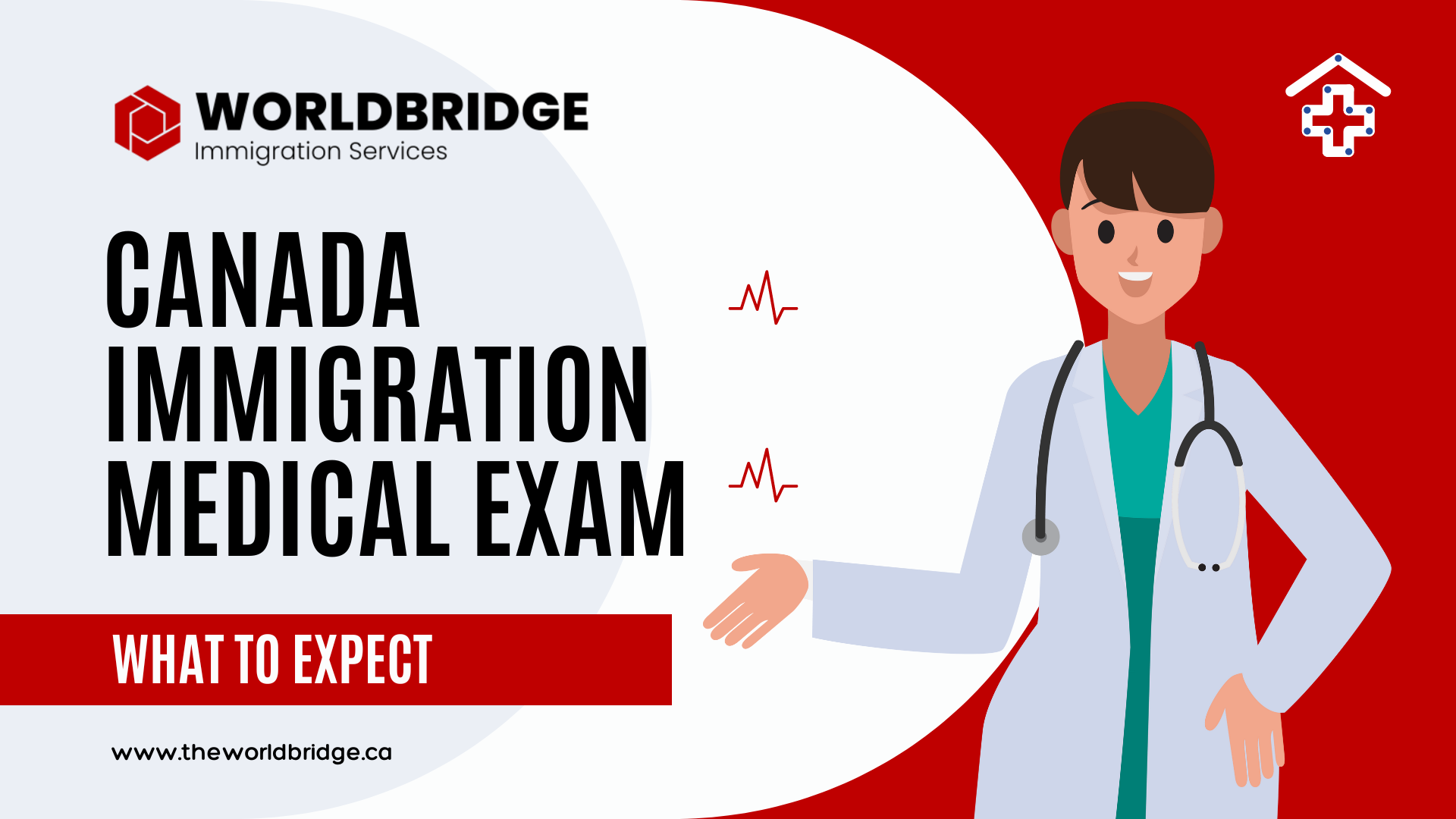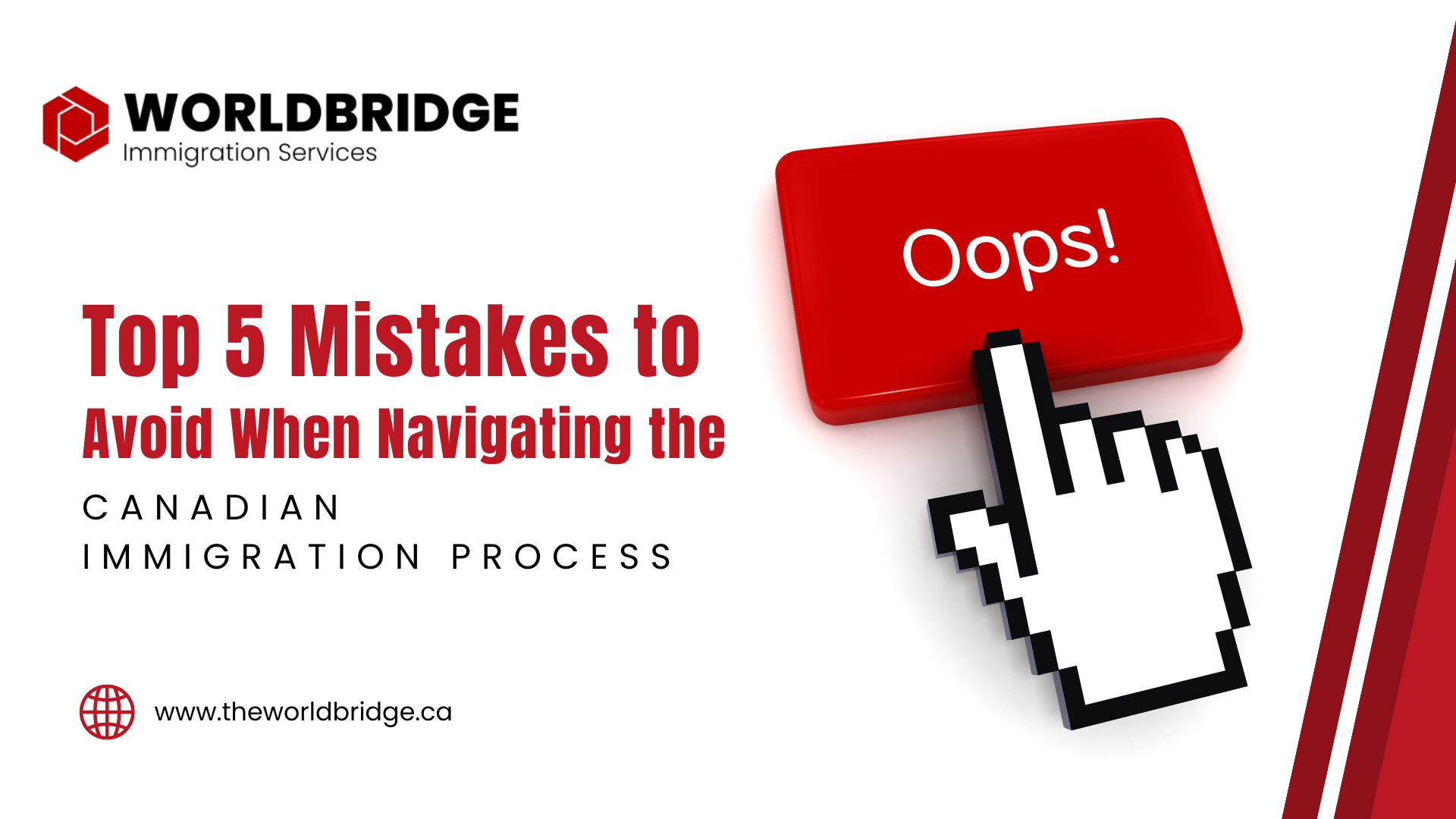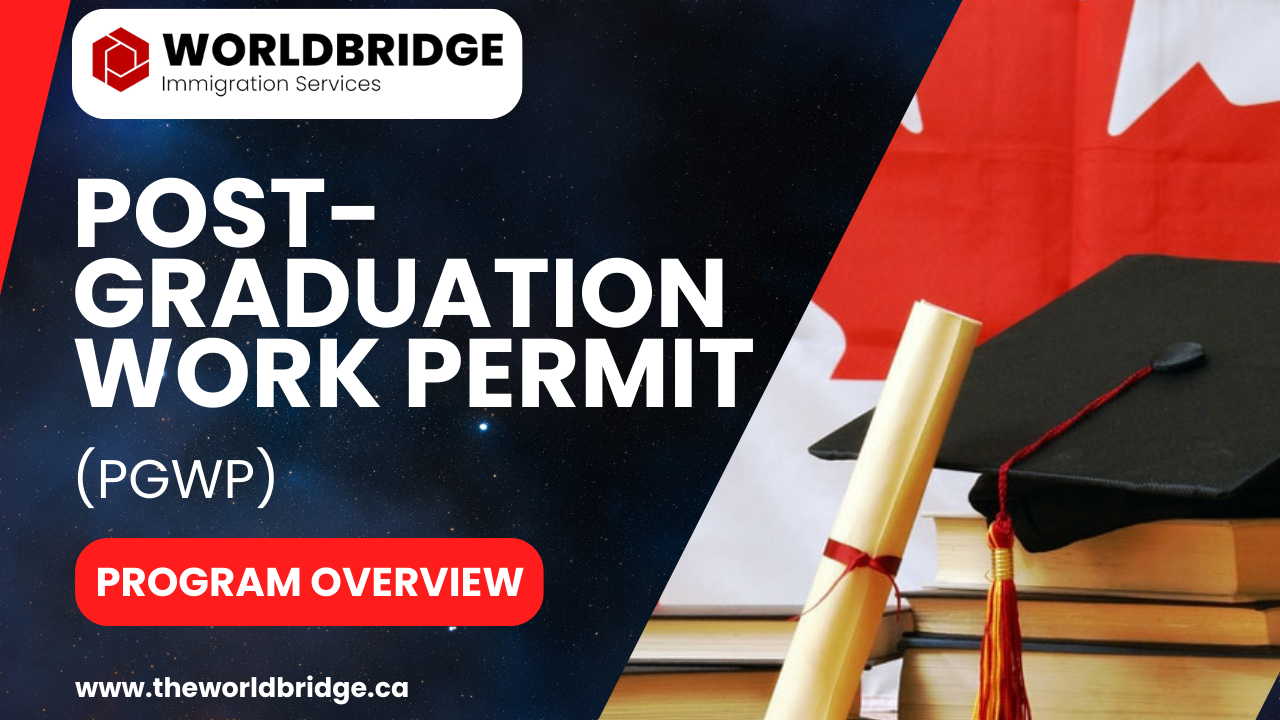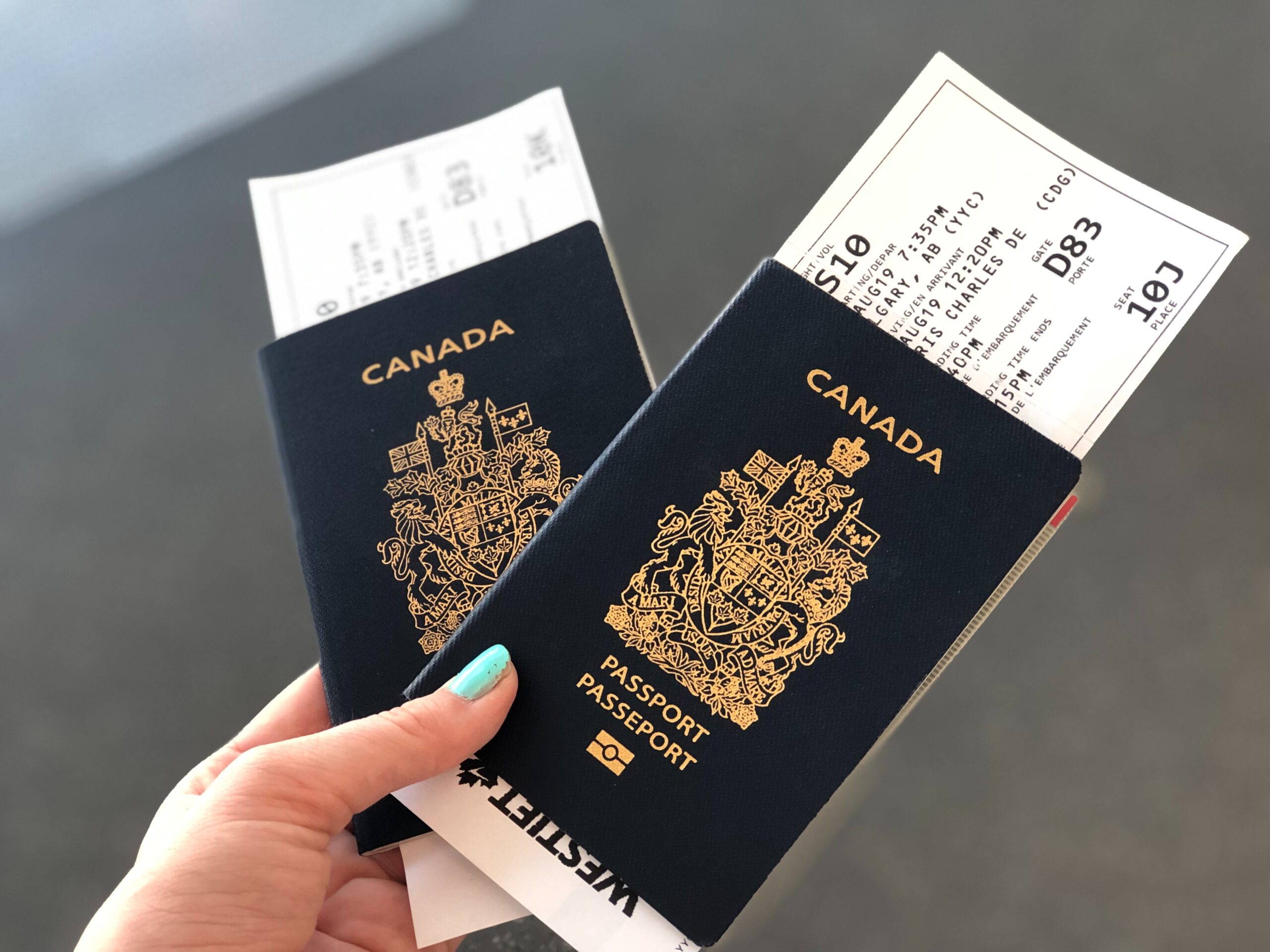Ottawa, Canada – May 10, 2024 In a landmark summit, the Forum of Ministers Responsible for Immigration (FMRI) convened to chart the future course of Canada’s immigration policies. Immigration ministers from across federal, provincial, and territorial governments pledged to strengthen their collaborative efforts to enhance the country’s immigration system. Key Takeaways from the Summit Strategic Plan for Immigration: Central to the summit was the unveiling of the Strategic Plan for Immigration (SPI) for 2024-2027. This comprehensive plan outlines a vision for a flexible, timely, and effective immigration system designed to maximize the economic and social benefits of immigration across all regions of Canada. Collaborative Efforts: The ministers emphasized the critical role of collaborative governance in managing immigration priorities. This includes meticulous planning of immigration levels, economic immigration strategies, and the settlement and integration of newcomers. Economic and Social Benefits: Recognizing the pivotal role of immigration in driving the nation’s economy and enriching its social fabric, the ministers underscored the importance of a well-managed immigration system to ensure these benefits are equitably distributed throughout the country. Public Services and Integration: Effective newcomer integration is contingent upon robust public services. The ministers concurred on the necessity for sustained collaboration to fortify the immigration system and to reinstate funding to employment services under the Labour Market Transfer Agreements (LMTAs). Provincial Nominee Program (PNP) The PNP was lauded as a critical tool for addressing regional labour market needs and supporting economic, cultural, and societal objectives. Discussions also highlighted the role of immigration in enhancing the vitality of Francophone communities outside Quebec. Temporary and Permanent Residents: A balanced approach to the influx of temporary and permanent residents was debated. For the first time, the federal government plans to include temporary residents in the annual immigration levels plan, aiming to reduce their population to 5% of Canada’s total population. Labour Market and Cultural Diversity: Temporary residents were acknowledged for their substantial contributions to Canada’s prosperity, labour markets, and cultural diversity. The ministers called for strategic management of any reductions in temporary resident volumes, ensuring alignment with labour needs in key industry sectors. The 2024 FMRI Summit represents a unified effort by Canadian immigration authorities to tackle the challenges and leverage the opportunities presented by immigration. The concerted focus is on ensuring the country continues to benefit from the contributions of newcomers while maintaining robust support systems for integration and public services. Let Worldbridge Immigration Services be your guide to a successful future in Canada. Contact us: Website: www.theworldbridge.caEmail: info@theworldbridge.caPhone/WhatsApp: +1-416-727-7766Social media: @theworldbridgeHQ Source: IRCC
A Guide to Canada’s Immigration Medical Exam: What to Expect
Today, we delve into a crucial aspect of Canadian immigration: the medical examination. Aspiring immigrants often wonder about the medical conditions that might affect their admissibility to Canada. It’s essential to understand the requirements and processes involved in ensuring medical admissibility to Canada. Before being granted permanent residency in Canada, individuals must fulfill certain conditions, including meeting medical admissibility criteria. This means having no medical condition that could endanger the Canadian population. Whether you’re applying for study, work, or permanent residency in Canada, meeting medical inadmissibility rules is paramount. There are three primary reasons for medical inadmissibility: 1. Danger to Public Health: Having a contagious disease or condition that poses a risk to Canadians. 2. Danger to Public Safety: Possessing a mental health condition that could lead to violent behavior, endangering others. 3. Excessive Demand on Health and Social Services: Having a medical condition that would strain Canada’s healthcare system. When applying for residency, all members of your nuclear family, including your spouse and children, must undergo a medical examination. Even if family members aren’t accompanying you immediately, they might join you later, posing a potential threat if they have undiagnosed medical conditions. It’s crucial to note that only panel physicians approved by IRCC can conduct medical examinations. You cannot visit any doctor or private clinic for this purpose. For those applying through express entry, there’s an option to undergo upfront medical examinations before or after submitting the application. However, opting for an upfront medical examination shortens the validity period for traveling to Canada after receiving confirmation of permanent residency. The cost of medical examinations can be significant, varying by country. For example, in Kenya, the medical examination cost for permanent residency is substantial. It’s essential to plan accordingly, considering the expense involved, especially since there are no refunds if your application is unsuccessful. The types of medical examinations required depend on age: 1. 0-4 Years Old: Physical examination, checking weight, height, pulse rate, blood pressure, hearing, vision, heart and lung health, and breathing. 2. 5-10 Years Old: Physical examination, plus urinalysis. 3. 11-14 Years Old: Physical examination, urinalysis, and chest x-ray for tuberculosis. 4. 15 Years and Older: Physical examination, urinalysis, chest x-ray for TB, blood pressure check, eye checkup, and blood tests for syphilis and HIV. It’s important to note that panel physicians don’t determine admissibility; IRCC makes that decision based on medical reports. Panel physicians only conduct and submit the test results to IRCC for review. Undergoing a medical examination is a crucial step in the Canadian immigration process. It’s essential to be aware of the requirements, costs, and procedures involved to ensure a smooth application journey. Worldbridge Immigration Services can be your guide to a successful immigration to Canada. Contact us:Website: www.theworldbridge.caEmail: info@theworldbridge.caPhone/WhatsApp: +1-416-727-7766Social media: @theworldbridgeHQ
Navigating the Canadian Immigration Process: Top 5 Mistakes to Avoid
Canada, known for its diverse culture, robust economy, and high quality of life, continues to be a popular destination for immigrants seeking new opportunities. However, navigating the Canadian immigration process can be complex, and there are common pitfalls that many newcomers fall into. To ensure a smooth transition and maximize your chances of success, it’s essential to avoid these top five mistakes: 1. Choosing the Wrong Province:One of the most common mistakes immigrants make is flocking to major cities like Toronto and Vancouver without considering the implications of high living costs and fierce competition for jobs and housing. While these cities offer numerous opportunities, they also come with significant challenges. Instead, consider exploring smaller cities or provinces where the cost of living is lower, and the job market may be less saturated. For instance, Manitoba boasts affordable housing and ample job opportunities, making it an attractive option for newcomers. 2. Selecting the Wrong Program in School:Many individuals pursue higher education in Canada with the hope of obtaining permanent residency. However, selecting the wrong program can hinder your chances of achieving this goal. It’s crucial to research and choose programs that are in high demand in the Canadian job market. Fields such as healthcare, skilled trades, and engineering offer excellent prospects for employment and permanent residency. By aligning your educational pursuits with the country’s labor needs, you can enhance your prospects of success in Canada. Want to study in Canada? Worldbridge Immigration Services can help you with all your processes, from choosing the best programs to getting you to Canada. Don’t have enough to fund your study? We can also help you. Talk to us about your interest. Click here to do so. 3. Arriving in Canada Without a Plan:Some immigrants arrive in Canada with vague intentions and no clear plan for their future. This lack of direction can lead to wasted time, money, and opportunities. Before making the move, take the time to set specific goals and objectives for your time in Canada. Whether it’s advancing your career, starting a business, or pursuing further education, having a well-defined plan will help you stay focused and motivated amidst the challenges of settling in a new country. 4. Failing to Secure a Job Offer:In today’s competitive job market, arriving in Canada without a job offer can be financially risky, especially if you’re relocating with family. Without a steady source of income, you may quickly deplete your savings, putting your financial stability at risk. To mitigate this risk, make every effort to secure a job offer before immigrating to Canada. Research companies in your field, network with professionals, and leverage online job boards to increase your chances of finding employment. Having a job offer in hand will provide you with peace of mind and ensure a smoother transition to your new life in Canada. 5. Neglecting to Build a Support Network:Moving to a new country can be a daunting experience, especially when you’re far from friends and family. Neglecting to build a support network in Canada can leave you feeling isolated and overwhelmed. Take proactive steps to connect with fellow immigrants, join community groups, and seek out mentorship opportunities. Building a support network will not only provide you with valuable advice and assistance but also foster a sense of belonging and community in your new home. Navigating the Canadian immigration process requires careful planning, research, and foresight. By avoiding these common mistakes and taking proactive steps to set yourself up for success, you can make the most of your experience in Canada and achieve your long-term goals. Remember to stay resilient, adaptable, and open-minded as you embark on this exciting new chapter in your life. Let Worldbridge Immigration Services be your guide to a successful future in Canada. Contact usWebsite: www.theworldbridge.caEmail: info@theworldbridge.caPhone/WhatsApp: +1-416-727-7766Social Media: @theworldbridgeHQ
The Benefits of Studying in Canada: A Pathway to Permanent Residency
Are you curious about the real benefits of studying in Canada? Do you sometimes ponder on what it’s like to be an international student in Canada? If you are considering studying in Canada, this information will give you some reasons why studying in Canada is a great choice for international students. 1. Quality Education: One of the biggest benefits of studying in Canada is the quality of education. The country is home to world-class institutions and many top-tier schools. Canadian universities are consistently ranked as some of the best in the world and offer a variety of programs. The strong research programs, high-quality education, and well-funded infrastructure provide an excellent learning environment for international students. 2. High Quality of Life: Canadians enjoy a high standard of living, safety, and access to excellent healthcare facilities. Canada is one of the most peaceful countries in the world, with low crime rates and a strong police force. Canadians are content with their lives, making it an ideal environment for students to thrive academically and personally. 3. Work Opportunities: Canada’s laws allow international students to work part-time during their studies and offer pathways for post-graduation employment. Under new rules coming into force in the fall, international students will be allowed to work up to 24 hours per week during the school year and 40 hours per week during scheduled breaks and holidays. Canada also provides opportunities for qualified graduates to become permanent residents, enhancing long-term prospects for success. Read – Canada’s Post-Graduation Work Permit (PGWP) program overview 4. Cultural Diversity: Canada’s rich cultural tapestry offers international students the opportunity to explore diverse traditions, languages, and perspectives. Multiculturalism fosters a vibrant and inclusive community where students can learn from each other and broaden their horizons. This cultural diversity provides an enriching educational experience for students from around the world. 5. Inclusive Society: Grounded in values of civility, tolerance, and multiculturalism, Canada embraces diversity as a source of strength. The strong sense of community in Canadian universities makes it easy for students to forge connections and friendships from around the world. Canada’s welcoming nature and inclusive culture create a supportive environment for international students. 6. Affordable Tuition Fees: Canada’s educational institutions offer some of the lowest tuition fees for international students compared to other English-speaking countries. This affordability makes Canada an attractive option for those seeking a high-quality education at an affordable cost. Want to study in Canada, but can’t afford the fees? Explore our Financial Aid option (Part Funding) or click here for Full Funding option. 7. Safe and Stable Environment: Canada is known for its political stability and low crime rates, making it a safe place to study. Whether you’re concerned about personal safety or political stability, Canada offers a secure environment for international students. As a bonus point, tuition fees at Canada’s educational institutions are some of the lowest in the English-speaking countries. With its world-class universities and diverse culture, studying in Canada is a no-brainer. In summary, Canada is a safe place to study both in terms of crime rates and political stability, making it a great option for students who are worried about their safety. Let Worldbridge Immigration Services Guide Your Path to Canada Contact us:Website: www.theworldbridge.caEmail: info@theworldbridge.caPhone/WhatsApp: +1-416-727-7766Social media: @worldbridgeHQ
Unite Your Family in Canada: Understanding and Navigating the Family Sponsorship Program
Family sponsorship is a profound pathway to Canadian permanent residency, reflecting the nation’s commitment to unity and diversity. As a Canadian citizen or permanent resident, you possess the privilege of reuniting with your loved ones through this impactful program. To sponsor a family member, you must be at least 18 years old, a signifier of your readiness to shoulder the responsibility of aiding a relative’s transition to life in Canada. Whether you are a Canadian citizen, a permanent resident, or registered under the Canadian Indian Act, sponsoring a family member is an opportunity to extend the benefits of your status, helping them forge a future in a land celebrated for its inclusivity and opportunities. Sponsoring a family member goes beyond fulfilling minimum income thresholds; it is a profound commitment to providing a stable foundation for their new beginnings in Canada. This financial assurance is crucial in aiding your loved ones to integrate into Canadian society seamlessly, without the burden of economic hardship. The program allows for the sponsorship of spouses, common-law or conjugal partners, dependent children, parents, and grandparents, emphasizing the importance of familial bonds and the joy of reunification. Additionally, in unique circumstances, you may sponsor orphaned siblings, nieces, nephews, or grandchildren under 18, a compassionate act that offers a nurturing environment to younger or more vulnerable family members. There are clear boundaries within the program to maintain its integrity. Restrictions on sponsoring boyfriends/girlfriends, fiancés, or friends ensure that the program’s primary focus remains on uniting families, rather than circumventing immigration procedures. Read more about Family Sponsorship Applying for family sponsorship involves more than just paperwork; it is about narrating the unique story of your family and your desire to bring them to Canadian shores. The commitment extends beyond signing documents—it’s a pledge to support your family as they assimilate into a new culture and community. Worldbridge Immigration Services can help you with the application and visa processing. Book a free consultation session with us. Approval of your application is not merely a procedural success; it marks the celebration of a new chapter for your family member in Canada. Obtaining permanent residence is the culmination of a journey filled with hope, promising a future replete with stability, safety, and opportunities in a country that cherishes multiculturalism and inclusion.Family sponsorship is not just a set of legalities; it is a bridge connecting families across borders, enabling them to flourish in a supportive and inclusive environment. It is a journey filled with anticipation, hope, and the promise of a brighter future. Let Worldbridge smooth the path for your family’s relocation to Canada. For guidance and support, get in touch with us today. Website: www.theworldbridge.caEmail: info@theworldbridge.caPhone/WhatsApp: +1-416-727-7766Social Media: @worldbridgeHQSee our services
Overcoming the Challenges of Canadian Immigration
April 1, 2024 CANADA stands as a beacon for countless individuals seeking a fresh start, whether it be on a temporary or permanent basis. Its robust economy, high quality of life, and inclusive society make it a top destination for immigrants worldwide. However, the journey to Canadian shores is fraught with complexities. Among these, the lack of clear information stands out as a significant hurdle, fueling desires for accessible, accurate data and fears of misinterpretation that could lead to penalties. Here’s how to navigate these challenges effectively. The Core Issue: A Maze of Information The first reality many people face when looking to Canada for immigration is the sheer volume of information, which can be overwhelming and, at times, contradictory. Official resources, forums, and third-party services offer a deluge of data that can leave applicants confused about where to start or what steps to follow. The Aspiration: A Compass in the Information Storm What everyone desires is not just more information, but a compass to navigate through it – accurate, comprehensive guidance that can illuminate the path forward. This guidance should clarify the process, outline the requirements for various programs, and set expectations for timelines and outcomes. The Fear: The Consequences of Misinterpretation Lurking behind the quest for information is the fear of misinterpretation. Immigration laws and regulations are notoriously complex and subject to change. A misunderstanding can lead to errors in application forms, incorrect document submissions, or failure to meet eligibility criteria, any of which can result in application delays, rejections, or even bans. Overcoming the Challenges The Immigration, Refugees and Citizenship Canada (IRCC) website should be your primary source of information. It provides the most up-to-date details on immigration programs, eligibility criteria, and application processes. Begin here to ensure you’re getting the correct information directly from the source. The IRCC website offers various tools and self-assessments to help applicants understand their eligibility for different immigration programs. Make use of these resources to get a preliminary idea of where you might fit in the Canadian immigration landscape. Consider consulting with a registered immigration consultant or lawyer. These professionals can provide clarity, navigate the complexities of immigration laws, and offer tailored advice based on your specific circumstances. Ensure they are authorized by the Canadian government to offer immigration advice. Immigration policies can change. Stay informed by regularly checking the IRCC website or subscribing to updates from reputable news sources and immigration blogs. This proactive approach can help you adjust your plans as needed and avoid being caught off-guard by new requirements or procedures. Double-check your application and documents against the latest requirements before submission. Attention to detail can prevent errors that might lead to delays or rejections. Consider using checklists and timelines to keep your application process organized. The path to Canadian immigration is often a marathon, not a sprint. Prepare for a journey that may take longer than anticipated and may require patience and persistence. Keeping a positive mindset and staying focused on your end goal can help navigate this process with resilience. In Conclusion While the challenges of navigating Canadian immigration are real, they are not insurmountable. With a strategic approach that combines thorough research, professional guidance, and meticulous preparation, you can overcome the obstacles of unclear information, fulfill your desire for accurate guidance, and alleviate the fears of misinterpretation. The dream of starting anew in Canada is within reach, armed with the right knowledge and resources. How We Can Help Navigating the Canadian immigration system can be complex and daunting. But you don’t have to do it alone. At Worldbridge Immigration Services, we offer professional advice and guidance to demystify the process and enhance your chances of success. Whether you’re seeking to move to Canada on a temporary or permanent basis, our team of experts is here to provide you with the support and information you need every step of the way. At Worldbridge Immigration Services, we are committed to making your journey to Canada as smooth and successful as possible. Contact us today to get started on your path to a new life in Canada. Website: www.theworldbridge.caEmail: info@theworldbridge.caWhatsApp/Phone: +1-416-727-7766Social media: @WorldbridgeHQ
Ontario Prioritizes International Student Applications to Meet Labour Market Demands
Worldbridge Immigration Services Posted Mar 28, 2024 The Province of Ontario has announced a strategic allocation of international student study permit applications in an effort to bolster its labour market by ensuring international graduates are prepared to fill in-demand jobs. This initiative comes as a direct response to the federal government’s decision to cap the number of study permits for the next two years. Jill Dunlop, the Minister of Colleges and Universities, emphasized the province’s commitment to maintaining the integrity of Ontario’s postsecondary education system. The strategy involves attracting top-tier international students to study in fields that are crucial to the economic vitality of the province. Collaborations with postsecondary institutions are key to aligning international student enrolment with the province’s labour demands. A significant 96% of the study permit applications will be allocated to publicly assisted colleges and universities, leaving 4% for Ontario’s language schools, private universities, and other institutions. Notably, career colleges will not be part of this allocation. The allocation to institutions will be based on several criteria, focusing on programs in high-demand areas such as skilled trades, health human resources, STEM, hospitality, and childcare. Institutions are also required to maintain their permit levels from 2023 and ensure international permits do not exceed 55% of their first-year domestic enrolment, with the exception of those in high-demand fields. Special consideration is being given to French-language enrolment, acknowledging the competitive demand for workers proficient in French. This move is aimed at aligning educational offerings with labour market needs while promoting economic growth within Ontario. To apply for a study permit, international students will need a provincial letter of attestation, confirming their acceptance within the allocated permits. This attestation can be obtained from the admissions office of the Ontario postsecondary institution where the student plans to enroll. The Ontario government is also implementing measures to safeguard the well-being of international students. This includes ensuring housing availability, investing over $32 million in mental health support for the 2023-24 academic year, and introducing legislation aimed at enhancing the student experience through improved mental health support and increased fee transparency. In light of changes announced by the federal government in January 2024, international students starting programs at publicly assisted colleges through private partners after May 15, 2024, will not be eligible for post-graduation work permits. These measures reflect Ontario’s proactive approach to adapting its educational system to meet both the needs of its labour market and the aspirations of international students seeking quality education in Canada. 5 Key Takeaways Ontario is allocating 96% of international student study permit applications to publicly assisted colleges and universities to fill in-demand jobs and support economic growth, with specific emphasis on sectors like skilled trades, health human resources, STEM, hospitality, and child care. The initiative ensures that international students are channeled into programs that directly contribute to the province’s economic needs, maintaining a balance between international and domestic enrolments. Recognizing the demand for French-speaking professionals, Ontario is prioritizing French-language enrolment, aligning educational outcomes with the broader labour market requirements. Ontario is committed to improving the international student experience by requiring guaranteed housing options, investing in mental health, and enhancing accountability and support through new legislative measures. Changes announced by the federal government affect eligibility for post-graduation work permits, particularly for students in programs delivered through private partnerships with publicly assisted colleges, starting May 15, 2024. For international students and their families seeking to navigate the complexities of school admission and the study permit application process in Ontario, Worldbridge Immigration Services offers expert guidance and support. Our experienced team is ready to assist you in making informed decisions about your educational journey in Canada. Contact Us: Website: www.theworldbridge.caEmail: info@theworldbridge.caPhone/WhatsApp: +1-416-727-7766Social media: @theworldbridgeHQ Let Worldbridge Immigration Services be your bridge to a successful academic and professional future in Ontario, Canada.Top of Form
Post-Graduation Work Permit (PGWP) Program Overview
Canada’s Post-Graduation Work Permit (PGWP) program is a unique opportunity for graduates from eligible Canadian postsecondary institutions to extend their stay in Canada through meaningful employment. This program enables eligible international student graduates to gain valuable Canadian work experience, which is a crucial step for those considering permanent residency in Canada. Eligibility and Application Graduates from an eligible full-time program of at least eight months in duration at a designated learning institution in Canada may apply for the PGWP. It’s important to apply within 180 days of receiving your final grades to qualify for this opportunity. Work Permit Duration The duration of the PGWP varies, ranging from eight months to a maximum of three years, depending on the length of your study program. In a significant update as of February 15, 2024, graduates from master’s programs of less than two years will now qualify for a three-year work permit, ensuring that all master’s degree holders can benefit from extended work opportunities in Canada. Employment Opportunities As a PGWP holder, you have the flexibility to work full-time, anywhere in Canada, and in any occupation, though some jobs may require a medical exam. This open work permit is a stepping stone towards gaining the Canadian work experience required for permanent residence. Recent Policy Changes For Students of Public/Private Institution Partnerships: Effective May 15, 2024, new students of public/private institution partnership models under curriculum licensing arrangements (PPPs) will no longer be eligible for the PGWP. However, students already enrolled in PPP programs before this date will retain their eligibility post-graduation.For master’s Program Graduates: Starting February 15, 2024, master’s students graduating from programs shorter than two years are now eligible for a three-year PGWP, aligning their opportunity with other graduates. How We Can Help At Worldbridge Immigration Services, we are committed to guiding you through the PGWP application process, offering expert advice tailored to your individual circumstances. Whether you’re navigating the eligibility criteria, preparing your application, or planning your career path in Canada, our team is here to support you every step of the way. For personalized assistance and to learn more about how these changes may impact you, contact us today.Website: www.theworldbridge.caEmail: info@theworldbridge.caWhatsApp/Phone: +1-416-727-7766Social media: @WorldbridgeHQ Kitchener, ON CanadaMarch 25, 2024
Express Entry: Explaining the Comprehensive Ranking System (CRS) and Strategies to Improve CRS Scores
Express Entry is a point-based immigration system implemented by the Government of Canada to manage applications for permanent residency under three key economic immigration programs: the Federal Skilled Worker Program (FSWP), the Federal Skilled Trades Program (FSTP), and the Canadian Experience Class (CEC). This resource aims to provide a comprehensive understanding of the Express Entry system, with a specific focus on the Comprehensive Ranking System (CRS), points calculation, and strategies to enhance CRS scores. At Worldbridge, we believe that knowledge is power, and we are committed to assisting you in navigating the Express Entry process effectively. a. Core Human Capital Factors (600 points): i. Age: Points are awarded based on the candidate’s age at the time of application, with higher scores for younger applicants. ii. Education: Educational qualifications are a significant determinant of CRS scores, with higher points awarded for higher levels of education. iii. Work Experience: Candidates receive points for their skilled work experience acquired both inside and outside of Canada. iv. Language Proficiency: Proficiency in English and/or French is assessed through standardized language tests (IELTS, CELPIP, or TEF). v. Canadian Education or Work Experience: Additional points are granted for candidates with Canadian work experience or educational qualifications. b. Additional Factors (600 points): i. Provincial Nomination: Obtaining a provincial nomination through a Provincial Nominee Program (PNP) can significantly increase CRS scores. ii. Job Offer: A valid job offer from a Canadian employer can add valuable points to the candidate’s CRS. iii. French Language Proficiency: Additional points are awarded for proficiency in French, in addition to English language proficiency. iv. Siblings in Canada: Having a sibling who is a Canadian citizen or permanent resident can result in additional CRS points. a. Improve Language Proficiency: Investing time and effort in improving language skills can have a significant impact on CRS scores. Preparing thoroughly for language tests and retaking them if necessary can lead to higher point allocations. b. Pursue Additional Education: Consider pursuing further education or obtaining additional certifications to boost educational credentials and gain more CRS points. c. Gain More Work Experience: Acquiring more skilled work experience, both within and outside Canada, can elevate CRS scores. d. Obtain a Provincial Nomination: Research and explore PNPs offered by various Canadian provinces to increase CRS scores and potentially receive a provincial nomination. e. Job Offer from a Canadian Employer: Actively seeking employment opportunities in Canada and securing a valid job offer can substantially raise CRS scores. f. Focus on Adaptability: Focus on factors that contribute to adaptability, such as having a spouse or partner with strong language skills or Canadian work experience. Conclusion: Understanding the Comprehensive Ranking System (CRS) and employing effective strategies to improve CRS scores are essential for a successful Express Entry application. At Worldbridge, we are dedicated to assisting you throughout the Express Entry process, from profile creation to receiving your Invitation to Apply (ITA) for permanent residency. Our experienced immigration consultants can guide you towards the best approach to maximize your CRS scores and achieve your dream of immigrating to Canada. Contact us today to embark on your Canadian immigration journey!
Step-by-Step Guide to Immigrating to Canada
Introduction: Welcome to Worldbridge, your trusted partner in Canadian immigration. If you’re considering immigrating to Canada, we understand that the process can seem overwhelming. This comprehensive step-by-step guide aims to demystify the journey and provide you with a clear understanding of the immigration process. From eligibility requirements to document preparation and application submission, we’ve got you covered. Let’s get started on your path to making Canada your new home. Step 1: Determine Your Eligibility The first and crucial step in the Canadian immigration process is to determine your eligibility for one of the available immigration programs. Canada offers various pathways for immigration, such as the Express Entry system, Provincial Nominee Program (PNP), Family Sponsorship, Study Permits, and Work Permits. Each program has its own set of eligibility criteria based on factors like age, education, work experience, language proficiency, and adaptability. At Worldbridge, our immigration experts will conduct a thorough assessment of your profile to identify the most suitable immigration program for your unique circumstances. This assessment will help you understand your chances of success and the best approach to proceed. Step 2: Gather Required Documents Once you’ve identified the immigration program you’re eligible for, the next step is to gather the required documents. These documents may include educational transcripts, language test results (IELTS, CELPIP, or TEF), work experience letters, police clearance certificates, proof of funds, and other supporting documents. Our team at Worldbridge will guide you through the document collection process, ensuring that all your paperwork is complete, accurate, and meets the specific requirements of your chosen immigration program. Step 3: Language Proficiency Assessment Language proficiency is a critical factor in most Canadian immigration programs. For English, you may need to take the IELTS (International English Language Testing System), CELPIP (Canadian English Language Proficiency Index Program), or for French, the TEF (Test d’Évaluation de Français). Achieving a higher language proficiency score can significantly boost your eligibility and CRS (Comprehensive Ranking System) score for Express Entry. Our experts will help you prepare for these language tests, providing resources and tips to improve your scores. Step 4: Create Express Entry Profile (If applicable) If you’re applying through the Express Entry system, you will need to create an online profile on the Immigration, Refugees, and Citizenship Canada (IRCC) website. The profile will require information about your education, work experience, language proficiency, and other relevant details. Based on the information provided, you will be assigned a CRS score, and your profile will enter the Express Entry pool. Worldbridge’s experienced consultants will assist you in creating a competitive Express Entry profile to enhance your chances of receiving an Invitation to Apply (ITA) for permanent residency. Step 5: Provincial Nominee Program (PNP) Application (If applicable) For those considering the Provincial Nominee Program (PNP), you will need to submit an application directly to the province or territory of your choice. Each PNP has its own unique criteria, and being nominated by a province or territory can lead to an increase in your CRS score. Our team will guide you through the PNP application process, ensuring all requirements are met, and provide valuable insights into specific provincial nomination streams. Step 6: Family Sponsorship or Work/Study Permit Application (If applicable) If you’re planning to join your family members in Canada or pursue work or study opportunities, you may need to apply for a Family Sponsorship, Work Permit, or Study Permit. Each type of application has its own requirements and procedures. Worldbridge’s consultants will walk you through the application process, ensuring all necessary documents are submitted, and the application is prepared accurately and efficiently. Step 7: Submit Your Application Once all the necessary documents are collected and your application is complete, it’s time to submit it to the appropriate immigration authority. Whether it’s an Express Entry application, a PNP application, or any other type of immigration application, the submission process must be accurate and well-organized to avoid delays or rejection. At Worldbridge, we pride ourselves on our attention to detail and will ensure your application is submitted with the highest level of professionalism and precision. Step 8: Wait for a Decision After submitting your application, there will be a processing period during which the immigration authorities will review your case. The processing time may vary depending on the type of application and other factors, such as the volume of applications being processed at the time. Throughout this waiting period, Worldbridge will keep you informed about the progress of your application, providing updates as soon as they are available. Step 9: Medical Examination and Background Check During the application process, you and your accompanying family members (if applicable) may be required to undergo a medical examination and a background check. These assessments are conducted to ensure that you meet Canada’s health and security requirements. Our team will help you prepare for these examinations, ensuring you have all the necessary information and documentation. Step 10: Receive Confirmation of Permanent Residency (COPR) Congratulations! Once your application is approved, you will receive a Confirmation of Permanent Residency (COPR) or a Permanent Resident Visa (PRV) in your passport. This document will allow you to travel to Canada as a permanent resident. Worldbridge will assist you in preparing for your arrival in Canada, providing information on settlement services and other resources to make your transition smooth and comfortable. Conclusion Navigating the Canadian immigration process may seem daunting, but with the right guidance and support, you can achieve your dream of living in Canada. At Worldbridge, our team of immigration experts is dedicated to assisting you at every step of the way. From assessing your eligibility to preparing and submitting your application, we are committed to providing you with personalized and reliable services. Let us be your partner in making Canada your new home! Contact us today to start your immigration journey.










